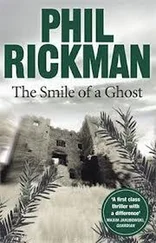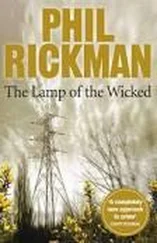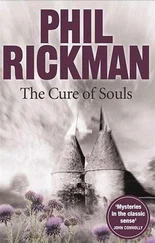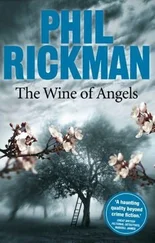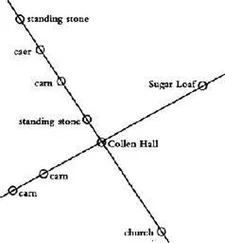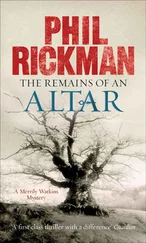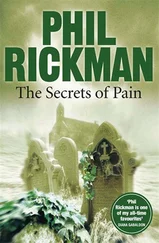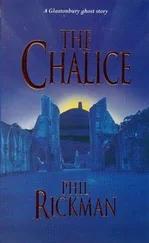‘You clever bastard.’ He sat back, smiling again. ‘What about Legge? Did he know why he was sent to Presteigne?’
‘Only to an extent, I’d guess. He’d simply know his duty was to see that Gethin was acquitted. He’s not a fool. Had he asked too many questions, well… would he even have arrived back in London?’
‘How would he not, with several dozen armed men?’
‘It would take but one man,’ I said, ‘to smother him in his chamber during some overnight—’
‘God’s bollocks, John! I always took you for an innocent.’
‘Me too,’ I said ruefully. ‘What will you do now?’
Soon wishing I hadn’t asked. In some awful way, fortified, convinced that God had brought him through for only one purpose, what he’d do was to continue as before, in pursuit of his life’s goal.
A spear of late sunlight lit the glass eyes of my finest owl, sitting stately on his window sill. The one that flapped his wings and said woo-woo.
* * *
As we walked down to the Thames, Dudley’s limp was barely perceptible; he stood tall again.
Oh, dear God.
‘Well, of course I won’t give up,’ he said.
I said nothing. The last barge of the day was returning empty to the Mortlake brewery as we went down the steps to the river’s edge.
‘Gather I’m to be honoured quite soon.’
‘How?’
‘Earldom. And if that doesn’t make me more of a candidate for Bess’s hand…’
‘Or it might be a compensation,’ I said.
‘Bollocks.’
‘You could waste your life.’
‘John.’ He turned to face me, his face half in shadow. ‘It is my life. It’s me or no one.’
‘She’s told you that?’
‘Had it from an angel,’ Dudley said.
* * *
When he’d gone, I sat on the top step and watched an olive mist floating over the water.
He hadn’t mentioned the letter from Thomas Blount. Even before this, I’d begun to wonder whether John Forest had even shown it to him. Perhaps Forest had been to Blount and cautioned against revealing intelligence suggesting Amy Dudley had been unfaithful to her husband and on the most intimate terms with her murderer.
That would most certainly demean him if it became public knowledge. And what would it achieve if Dudley knew? Murder by some Spanish assassin could never be proven now. There was little doubt that the inquest jury would return a verdict of death by accident.
Forest had perhaps reminded Blount that messengers were apt to be blamed. He himself had been embarrassed, on his return from Ludlow with twenty-five armed men, to find that Dudley was back in Presteigne and had commanded him, without explanation, to return to London.
My own greatest regret was that I’d not insisted on seeing Gethin’s body. I did not trust John Smart, who only wanted to protect his business and the reputation of Jeremy Martin.
While I had no doubt that Gethin was dead, I realised that he was only dead in the sense that his hero, Owain Glyndwr, was dead. No one knew where his body lay and perhaps no one ever would. Which would make a legend of him – stories told to children that he would one day return, this black sprite, if the spiritual defences of Brynglas were ever lowered.
And how could they be lower than they were now?
While Dudley had lain at the home of Branwen Laetitia Swift, Roger Vaughan and I had met with Bishop John Scory in the privacy of the church in Presteigne. Scory, with many threats and much bad feeling, was in the process of prising Matthew Daunce out of Pilleth and would choose his successor with care. The statue would be scrubbed and the church lightened with more windows.
Daunce, he said, would doubtless go to London where he had friends at the heart – if you could ever call it that – of the new Puritanism. I suspected his clerical career would rise. It was the way things were going.
Pilleth, however, would require spiritual ministry, of a more traditional kind. An old magic. John Scory asked my advice, as he had about the mysterious map of the world. I’d told him that Brynglas and its environs were no less mysterious to me now.
A lesson to be learned. I said I’d write in some detail to Scory when I’d given it more thought. It’s part of me now, that place, and I think I may have to return ere long.
* * *
After Siôn Ceddol was buried, not far from the church, I’d sought to persuade Anna to return with me to London, but had known it was unlikely. By Christmas I’d learn, in a letter from Stephen Price, that she was betrothed to a schoolmaster in Hereford.
Within three weeks of my return home, Thomas Jones came to Mortlake with my cousin Joanne, and we discussed these matters in some depth. I was intrigued to learn that five parish churches in the area of Pilleth and the Radnor Forest were dedicated to the Archangel Michael, which made me wonder if I’d not been drawn, that strange and tragic morn, into some archaic circus of power, long buried.
Who can say? Yet while the Wigmore shewstone remained there, I did take something away, which I was able to demonstrate to Thomas Jones… and hoped one day to show to the Queen in the gardens at Richmond.
The first instinct of it had been beside the tump, when the twig which had scored my head had twitched in my hand.
In my mother’s garden at Mortlake, I found forked twigs, of birch and hazel, with which, to my great joy, I was able to discover a new well betwixt our orchard and the church.
On another occasion, when Goodwife Faldo lost not a ring (thank God) but a copper brooch, I was able to find it for her – in the hedge by the road leading to the brewery – by walking with the twig held out before me and awaiting its response.
Feeling my wrists seized by an unknown force. Learning, by trial, that I should simply let it happen, for, when I tried to study how it happened, it would not. It was about… setting aside all intellect .
Several times, I’d swear that when my wrists moved I would look up and think I’d caught a bright bobbing movement over a hedge or a wall, like the progress of a red hat.
But, of course, this was in my mind, for I do not See.
THE END
A YEAR AFTER it was opened, the inquest into the death of Amy Dudley did indeed end, as John Dee expected, with a verdict of Accidental Death. It made no difference. Dudley would never marry Elizabeth.
Most of the theories about Amy’s death are explored in depth in Death and the Virgin by Chris Skidmore and Elizabeth and Leicester by Sarah Gristwood. A letter, dated August 24 – a fortnight before her death – from Amy to her dressmaker, places an order for the alteration of a velvet gown.
In these increasingly secular times, it’s easy to underestimate the influence of religion, superstition and magic in Tudor England and Wales. Often, advances in science only added credibility to the concept of magic.
For anyone still sceptical, the classic Religion and the Decline of Magic by Keith Thomas and The Arch-Conjurer of England by Glyn Parry will explain everything in scholarly detail.
Once again, I also relied on The Queen’s Conjurer by Benjamin Woolley, John Dee by Richard Deacon, John Dee, The World of an Elizabethan Magus by Peter J. French and The Occult Philosophy in the Elizabethan Age by Frances Yates. Some informed speculation about the Dee dwelling at Mortlake can be found in John Dee of Mortlake by Nicholas Dakin, published by the Barnes and Mortlake History Society. Damon Albarn’s music for his opera Dr Dee shows a sympathetic understanding of Mortlake’s finest and is well worth a listen.
Читать дальше


